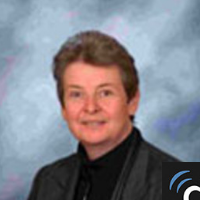Having a primary care physician you know and trust is an asset at any age, but a solid medical team becomes increasingly important as we get older. The truth is that treating older adults is very different from treating younger and even middle-aged patients. Older individuals are more susceptible to diseases, and they may also suffer from age-related progressive conditions that tend to become more severe over time. A specialized branch of medicine called geriatrics has evolved to focus solely on the care and rehabilitation of seniors. Some people choose to begin using a geriatrician as their primary care physician once they reach a certain age.
While geriatric medicine has been studied in many forms since ancient times, it wasn’t until the 1900s that modern, organized geriatric medical services were developed. Interest in this field has increased as the prevalence of age-related diseases and the population of seniors in the United States have grown. Unfortunately, the demand for these services significantly outweighs the number of practicing geriatric specialists.
Geriatric Physicians Have Strict Education, Training and Certification Requirements
Geriatricians are doctors who are Board Certified in family or internal medicine and have pursued additional education and experience in diagnosing and treating seniors. Managing an aging individual’s healthcare is notoriously complex because it often involves multiple chronic medical conditions as well as age-related psychological and social issues. Medical professionals who specialize in geriatrics use a comprehensive, patient-centered approach to improve a senior’s wellness and independence. They often collaborate with a patient’s other physicians to create a thorough plan of care.
In addition to Board Certification, geriatricians must also participate in a geriatrics fellowship program that involves a minimum of one year of clinical training and sometimes an additional year of research in the field. Other medical specialists may also elect to take additional training in geriatrics to become certified in subspecialties like geriatric psychiatry, geriatric cardiology and geriatric oncology.
Gerontologists are sometimes confused with geriatricians, but they are very different. Gerontologists have advanced degrees in the study of aging but are not physicians. These professionals often work at organizations serving seniors, such as long-term care facilities, Area Agencies on Aging and care management companies.
How to Find a Geriatrician
To find a geriatric physician in your area, ask for a referral from family, friends or other trusted medical professionals. You can also search for a geriatrics healthcare professional using the American Geriatrics Society’s online directory.
